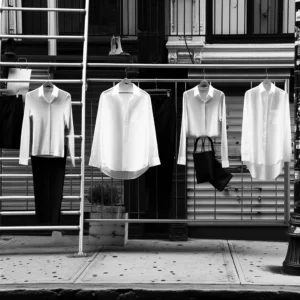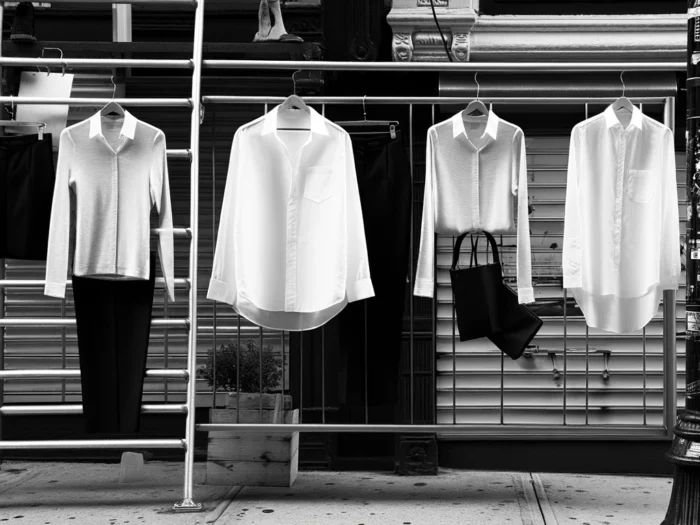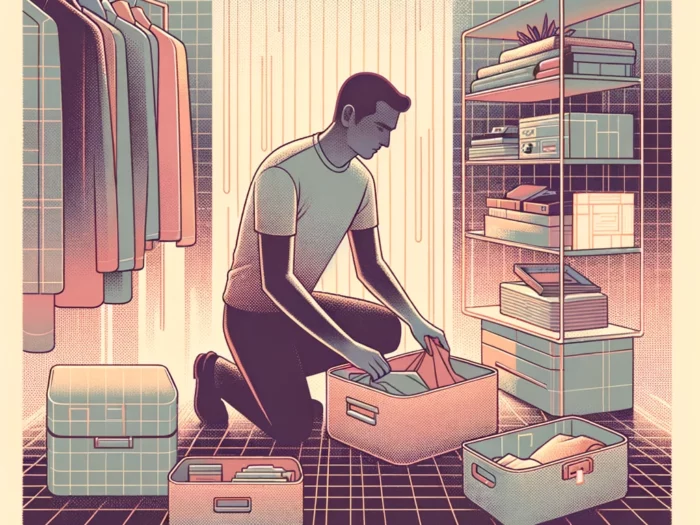
Today’s post is a guest post by Jackson Pryor.
Freedom is a gift, a blessing even. I can only speak for myself when I say that living more simply has felt like a massive weight being lifted from cramped shoulders and blackened blinders falling away from a view of life filled with commercial clutter.
However, donating trash bags of scarcely worn clothes and clearing countertops of barcoded bottles isn’t enough. There’s a desire, deep down, to match this newfound liberty in my everyday environment with an internal mirror image of the same. One way to meet this need has been to seek out pieces of history that reflect and support the endeavor of learning to live with less.
The Connection Between Simple And A Hymn
Being raised in a Southern Baptist church began to shape an interest in traditional hymns that speak volumes without a lot of fluff. Not that I don’t enjoy listening to contemporary music on the radio, but a sense of history can add an extra value.
Conveying complex doctrines like the Holy Trinity or salvation through Christ in ways that would reach the widest possible audience was a challenging task for lyricists throughout history. One particular sect took this melodic contest for converts to a new level, many of them with no formal musical training. They are, of course, the United Society of Believers in Christ’s Second Appearing, or the Shakers.
A Brief History Of The Shakers
Originally from England and under the leadership of their messianic matriarch, Ann Lee, the Shakers took the long trip to America to escape the same religious persecution faced by the Plymouth Rock Puritans and William Penn’s friendly neighborhood Quakers. Though one thing set these colonial Christians apart, they dedicated themselves to a life of separation from the modern world, communal living and celibacy.
To say the least, these folks needed all the power of persuasion they could muster to maintain an ever-eroding membership since the church’s peak in 1836. Through their rather advanced industry for the times, most famously in the form of furniture-building, and their noted frugality, the Shakers were able to build a network of communities across the young United States, spanning from Sabbathday-Lake, Maine to my own hometown of Auburn, Kentucky.
As for the music of these “non-ogamous” monastics, they are best known for the hymn “Simple Gifts”, which has undergone many renditions like this one by Alison Krauss and Yo-Yo Ma.
It was written and composed in 1848 by Elder John Brackett. See if anything in this song speaks to your own experience with cutting back on the unnecessary. These are the lyrics to “Simple Gifts:”
Simple Gifts
Tis the gift to be simple, ‘tis the gift to be free,
Tis the gift to come down where we ought to be,
And when we find ourselves in the place just right,
Twill be in the valley of love and delight.
When true simplicity is gained,
To bow or to bend, we shan’t be ashamed,
To turn, turn will be our delight,
Till by turning, turning we come ‘round right.
That’s it.
Only one verse, but a very direct message reflecting the very potent faith of Shaker congregations who sang it.
We Could Use This Simple Perspective
In todays’ whirl of pop culture, it can be useful to gain a new perspective on seemingly basic things like living with less “stuff”. Our society’s postmodern bias directs our sense-making gaze toward the future, toward progress, toward novelty when faced with problems, but we ought to look back to the views of past generations for inspiration or at least a point of comparison.
As people who have decided that too much really is too much and rejecting the lifelong quest for that false god “More,” minimalists here-there-and-everywhere can add to their own style of simplicity with a tether to tradition in history.
Like putting up a Christmas tree every year, many do because “we always do that” or “the neighbors do it too” and we can hold to a stronger connection with that practice when we know the greater meaning within ourselves.
Don’t Ignore A Greater Reason For Living Simple
My point is that while many of us choose to live life on the simpler side, don’t ignore the deeper, often more personal, reasons for doing so. To attach a greater narrative to an everyday habit than just cleaning-house out of necessity gives our choices a long-lasting impact and meaning that can remain well after we’re all gone.
As many of us have said before “we can’t take it all with us,” so I’d rather have the gift of freedom from a purely material life and instead focus on filling that life with lasting memories. With that said, let us go forth and find some “Simple Gifts” in our own lives.
Today’s post by: Jackson Pryor is an aspiring author and poet from South-Central Kentucky. He enjoys writing short stories and poems that focus on history, meaning, and faith. Hipp Digs is Jackson’s first endeavor into published work, hoping to contribute to its readership and the minimalist community-at-large.












